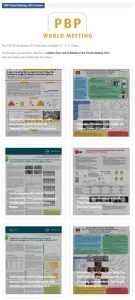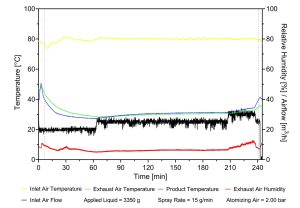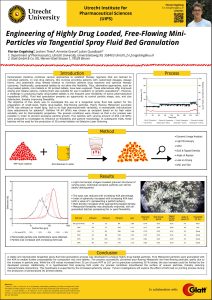Engineering of Highly Drug Loaded, Free-Flowing Mini-Particles via Tangential Spray Fluid Bed Granulation
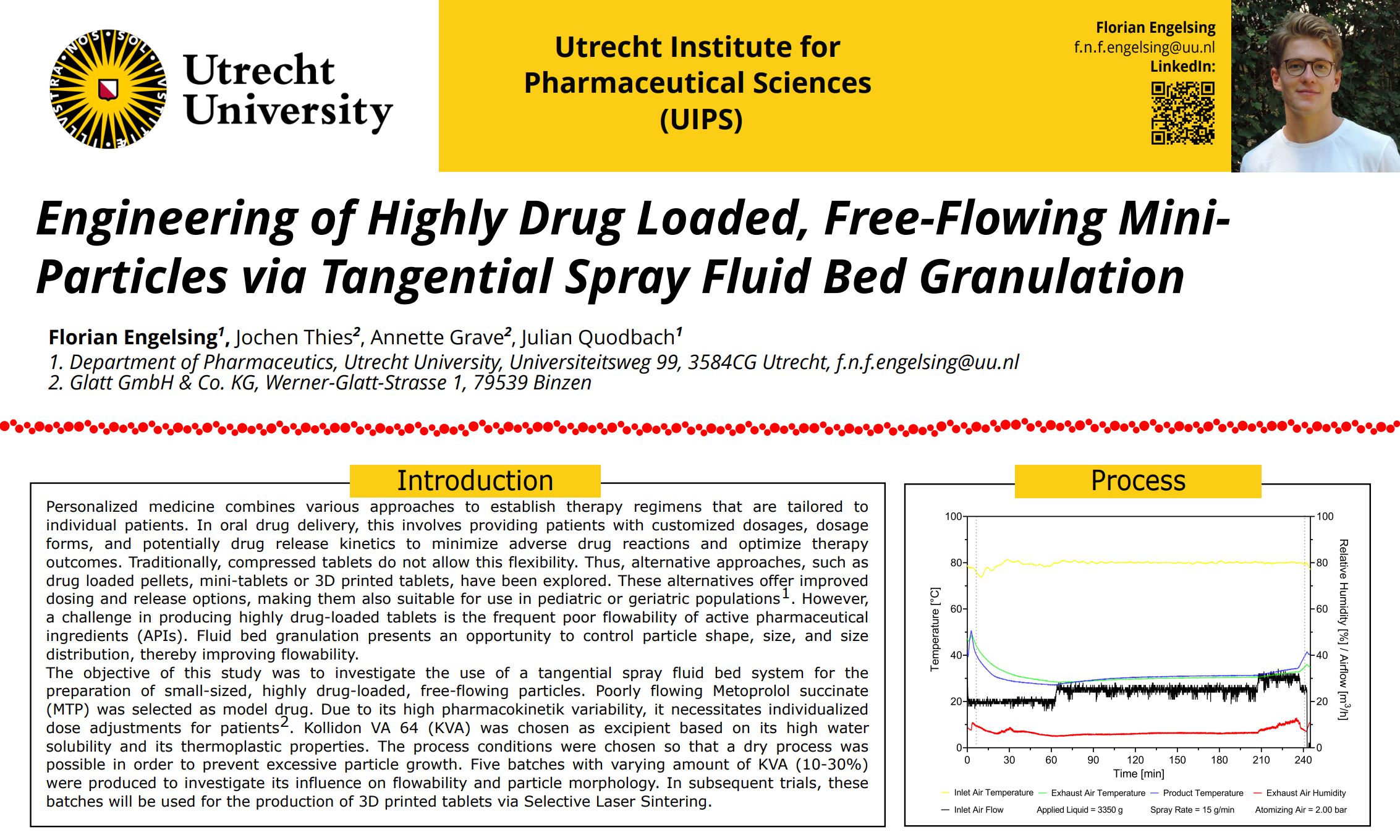
This poster was presented at the PBP World Meeting 2024 by Glatt Pharmaceutical Services with the Utrecht Institute for Pharmaceutical Sciences:
Introduction
Personalized medicine combines various approaches to establish therapy regimens that are tailored to individual patients. In oral drug delivery, this involves providing patients with customized dosages, dosage forms, and potentially drug release kinetics to minimize adverse drug reactions and optimize therapy outcomes. Traditionally, compressed tablets do not allow this flexibility. Thus, alternative approaches, such as drug loaded pellets, mini-tablets or 3D printed tablets, have been explored. These alternatives offer improved dosing and release options, making them also suitable for use in pediatric or geriatric populations1. However, a challenge in producing highly drug-loaded tablets is the frequent poor flowability of active pharmaceutical ingredients (APIs). Fluid bed granulation presents an opportunity to control particle shape, size, and size distribution, thereby improving flowability.
The objective of this study was to investigate the use of a tangential spray fluid bed system for the preparation of small-sized, highly drug-loaded, free-flowing particles. Poorly flowing Metoprolol succinate (MTP) was selected as model drug. Due to its high pharmacokinetik variability, it necessitates individualized dose adjustments for patients2. Kollidon VA 64 (KVA) was chosen as excipient based on its high water solubility and its thermoplastic properties. The process conditions were chosen so that a dry process was possible in order to prevent excessive particle growth. Five batches with varying amount of KVA (10-30%) were produced to investigate its influence on flowability and particle morphology. In subsequent trials, these batches will be used for the production of 3D printed tablets via Selective Laser Sintering.
Process
Method
Results
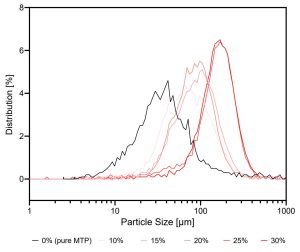
- Light microscopic images revealed granular structures of varying sizes. Individual excipient particles can still be clearly distinguished.
- The span was reduced with increasing KVA percentage.
- Index of sphericity increased with increasing KVA load (with a value of 1 representing a perfect sphere).
- Bulk density increased while approaching tapped density.
- Metoprolol flowability was drastically improved, with all granulated batches possessing fair or good flowability.
- Monomodal particle size distributions were obtained.
- Particle size increased with increasing KVA load.
Conclusion
A stable and reproducible tangential spray fluid bed granulation process was developed to produce highly drug-loaded particles. Pure Metoprolol particles were granulated with the KVA to enable further processability for compaction into mini-tablets. The process successfully converted poor-flowing Metoprolol into free-flowing particles, partly due to the increase in particle size. While the x50 values increased from 35 µm of pure MTP to 167 µm to granulues containing 30 % binder, the size increase could be limited by the developed process. Additionally, it is hypothesized that spraying KVA under dry process conditions smoothened the surface of uneven particles, thereby reducing interparticulate interactions. This hypothesis is supported by the increased sphericity values. Future investigations will explore the effect of KVA load on printing process during the production of personalized 3D printed tablets.
Download the full poster on “Engineering of Highly Drug Loaded, Free-Flowing Mini-Particles via Tangential Spray Fluid Bed Granulation” here
(click on the image to see them enlarged)
Source: Florian Engelsing 1, Jochen Thies 2, Annette Grave 2, Julian Quodbach 1
Poster “Engineering of Highly Drug Loaded, Free-Flowing Mini-Particles via Tangential Spray Fluid Bed Granulation”
1. Department of Pharmaceutics, Utrecht University, Universiteitsweg 99, 3584CG Utrecht, [email protected]
2. Glatt GmbH & Co. KG, Werner-Glatt-Strasse 1, 79539 Binzen
See more posters of the PBP World Meeting 2024:
